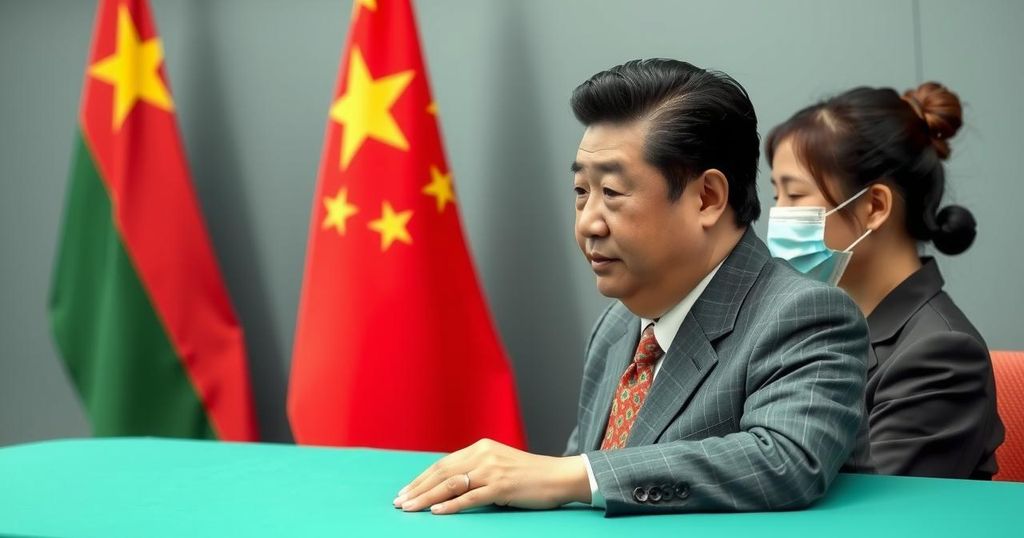Global news
ADVERTISEMENT XUE, AFRICA, AL-SHABAAB, ASIA, BEIJING, BILATERAL RELATIONS, CHINA, DIPLOMACY, DIPLOMATIC RELATIONS, GULF OF ADEN, HASSAN SHEIKH MOHAMUD, HORN OF AFRICA, IRRO, MEXICO, MOGADISHU, NORTH AMERICA, RICHARD H. RILEY, SOMALI, SOMALIA, SOMALILAND, SOVEREIGNTY, TAIWAN, UNITED STATES, US, WASHINGTON, WU CHIH - CHUNG
Marcus Li
0 Comments
China Affirms Support for Somalia Amid U.S. Recognition Bid for Somaliland
China’s special envoy Xue Bing reassures Somalia of support amid U.S. moves to recognize Somaliland. The visit comes after Somaliland’s inauguration of a new president, which drew attendance from Taiwan, causing diplomatic tensions with China. The U.S. also praised Somaliland’s electoral progress, intensifying the geopolitical rivalry in the region.
Recently, Xue Bing, China’s special envoy for the Horn of Africa, visited Somalia to express Beijing’s unwavering support for the nation amidst increasing U.S. efforts to recognize Somaliland. During his visit to the Somali capital, Mogadishu, Xue reaffirmed China’s position, stating that it backs Somalia in maintaining its national sovereignty and territorial integrity. This diplomatic move highlights the ongoing geopolitical rivalry in the region as Somaliland, which declared independence in 1991, continues to seek international recognition despite Somalia’s claims of sovereignty over it.
The backdrop to this development includes the inauguration of Abdirahman Mohamed Abdullahi, also known as Irro, as the new president of Somaliland. Notably, this event was attended by Taiwan’s deputy foreign minister, prompting a protest from China. Beijing vehemently opposes any formal exchanges between Taiwan and Somaliland, viewing Taiwan as a breakaway province rather than an independent state. Conversely, the U.S. delegation, led by Ambassador Richard H. Riley, commended Somaliland for its peaceful transition of power, further complicating the diplomatic landscape in the region.
The situation in Somalia and Somaliland has been complex since Somaliland declared independence from Somalia in 1991 following years of civil conflict. Despite its self-declared independence, Somaliland has not received formal recognition from the international community, which largely views it as an integral part of Somalia. The region has established its own government and democratic processes, which have drawn international attention and varying degrees of support. Recently, the U.S. has shown interest in recognizing Somaliland, aligning with its strategic interests in the Horn of Africa. However, this push raises tensions with Somalia and its allies, such as China, which advocates for strict recognition of Somalia’s territorial integrity, especially in the light of the Taiwan issue.
In conclusion, Xue Bing’s visit to Somalia underscores China’s commitment to supporting Somalia against the backdrop of U.S. initiatives to endorse Somaliland’s independence. The geopolitical maneuvering surrounding Somaliland illustrates the delicate balance of power in the Horn of Africa, where issues of sovereignty and international recognition remain contentious. Additionally, the involvement of Taiwan further complicates the dynamic, highlighting the interconnectedness of regional and global politics in shaping the future of Somalia and its northern territory.
Original Source: www.scmp.com




Post Comment